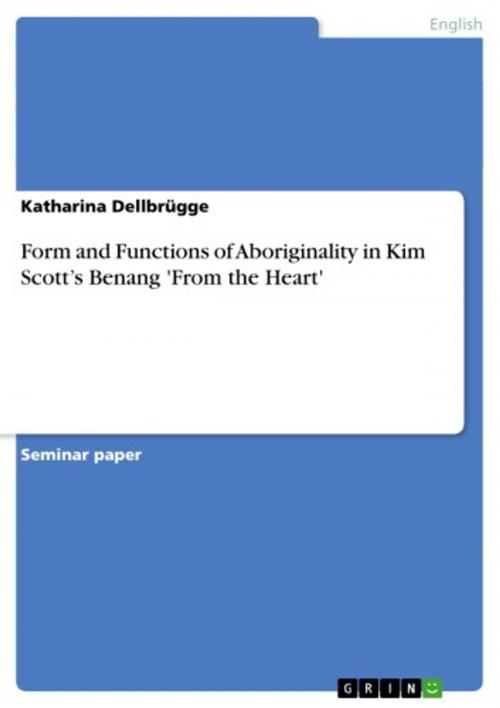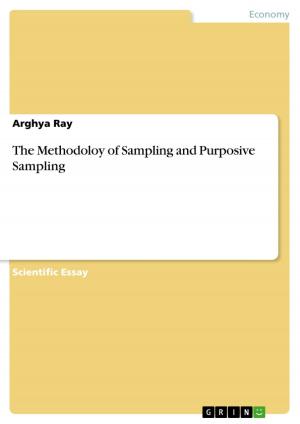Form and Functions of Aboriginality in Kim Scott's Benang 'From the Heart'
Fiction & Literature, Literary Theory & Criticism, British| Author: | Katharina Dellbrügge | ISBN: | 9783640546565 |
| Publisher: | GRIN Publishing | Publication: | February 23, 2010 |
| Imprint: | GRIN Publishing | Language: | English |
| Author: | Katharina Dellbrügge |
| ISBN: | 9783640546565 |
| Publisher: | GRIN Publishing |
| Publication: | February 23, 2010 |
| Imprint: | GRIN Publishing |
| Language: | English |
Seminar paper from the year 2009 in the subject English Language and Literature Studies - Literature, grade: 2,3, University of Cologne (Englisches Seminar), course: Classics of Australian Literature in English, language: English, abstract: This term paper wants to examine the forms and functions of Aboriginality in Kim Scott's novel Benang: From the Heart. Published in 1999 as the author's second novel, it gained great attention and also won the Miles Franklin Award. Kim Scott is a descendant of the Nyoongar people who have at all times inhabited the south-east coast of Western Australia. They used to be a large homogenous group that shared a common language and culture until the first white settlers landed on their continent. Apart from general mistreatment of these people, Kim Scott's novel illustrates how an institutionalized genocide of them and other Aboriginal people was attempted. The story not only includes individual stories of several Aboriginal characters, but also official documents, newspaper articles, letters and reports. Like that, Scott creates a counter-narrative to colonial history and gives voices to those who were oppressed by legislations and racism. The paper focuses on one type of Aboriginality, namely Harley's discovered Aboriginality. This closer investigation includes the other aspects to some extent, as all of them are closely intertwined. In the course of my survey I will try to work out Scott's way of representing certain aspects and which implications his choice might have for the interpretation of his novel, especially concerning the implications for a construction of Aboriginal identity and for the establishment of a new historical discourse.
Seminar paper from the year 2009 in the subject English Language and Literature Studies - Literature, grade: 2,3, University of Cologne (Englisches Seminar), course: Classics of Australian Literature in English, language: English, abstract: This term paper wants to examine the forms and functions of Aboriginality in Kim Scott's novel Benang: From the Heart. Published in 1999 as the author's second novel, it gained great attention and also won the Miles Franklin Award. Kim Scott is a descendant of the Nyoongar people who have at all times inhabited the south-east coast of Western Australia. They used to be a large homogenous group that shared a common language and culture until the first white settlers landed on their continent. Apart from general mistreatment of these people, Kim Scott's novel illustrates how an institutionalized genocide of them and other Aboriginal people was attempted. The story not only includes individual stories of several Aboriginal characters, but also official documents, newspaper articles, letters and reports. Like that, Scott creates a counter-narrative to colonial history and gives voices to those who were oppressed by legislations and racism. The paper focuses on one type of Aboriginality, namely Harley's discovered Aboriginality. This closer investigation includes the other aspects to some extent, as all of them are closely intertwined. In the course of my survey I will try to work out Scott's way of representing certain aspects and which implications his choice might have for the interpretation of his novel, especially concerning the implications for a construction of Aboriginal identity and for the establishment of a new historical discourse.















